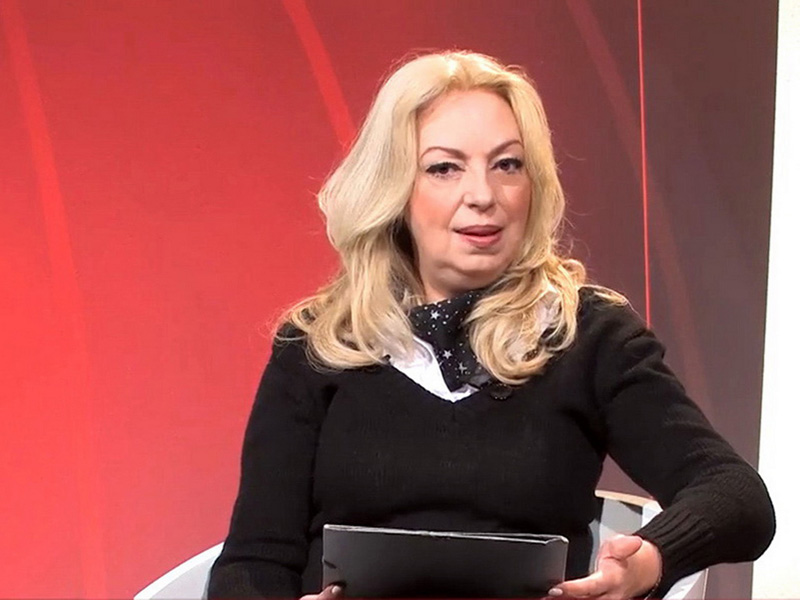
Each of us has been found in a situation to attend or be of a significant role at an event. Thinking of the word „event“, there occurs a thought of an important, special, officially (to a lesser or greater extent) accepted, personal and / or public activity.
Such an activity, event – should gather and ensure a participation of specific target group or to mark a specificity of the moment that should be remembered, or to point to perhaps brand newly emerged, important for the future, people, ideas, themes… And each participation shall be based on the specific characteristic of the human species, which is communication.
From the very idea of an event, to the concrete realization, there is a whole chain of steps, for many people entirely invisible, but without which no event will achieve its set objective.
Whether one is planning an organization of a symposium, congress, conference, concert, trade show, seminar, festival (and many other types of events), the implementation of the process shall involve the entire team, the synchronicity and quality of cooperation of which is the cornerstone of the success of the event. In most cases, events organizing represents a need for professionals from various business spheres, for which the only crossing point is the achievement of a specified goal. The success depends on the manner of use of widely available and necessary tool – communication.
Taking into account the variety of personal and professional profiles of all those involved in organizing the event, we often forget the need for a person who, in addition to coordinating the event, will coordinate the process of communication as well. This refers to a person who will be, let’s call it – Communication Manager, whose task is very demanding and involves supervisory skill, and even mediating ones, but primarily the skills of assertive communication. Without this team member, who has a quite positive continuous role of a “leader from the shadow”, the operation of the team in event organizing can be of a significantly reduced quality. Communication Manager can be the event manager or the one with a completely separate role.
 But each event manager must possess the communication skills. Clear, open and direct communication is the rule of exactly every good relationship, and thus of the operations as well. Furthermore, the arrangement of the roles that is based on competencies, but also on ambition and attitude of the team member to, in each segment, give his / her (possible) maximum, is also the subject of communication. The foregoing is not referring to an interview and signed contract, but to communication as a process throughout the whole duration of the organization, from the beginning until the official end of the event.
But each event manager must possess the communication skills. Clear, open and direct communication is the rule of exactly every good relationship, and thus of the operations as well. Furthermore, the arrangement of the roles that is based on competencies, but also on ambition and attitude of the team member to, in each segment, give his / her (possible) maximum, is also the subject of communication. The foregoing is not referring to an interview and signed contract, but to communication as a process throughout the whole duration of the organization, from the beginning until the official end of the event.
The distribution of roles implies also a hierarchy of power, principles and ability (obligation) of decision making, and it is well know that the power is closely associated with the responsibility, i.e. each of those two components cannot exist without the other one. We have no power over all we would wanted, and automatically we have no responsibility over any segment over which we have no power to influence and action. In line with the foregoing, the responsibility for elements of the process shall be wisely accepted and delegated to members of the management team and the business team in general. Depending on the type of the event, the organization of the management turns into a network of interpersonal reactions, with individual and/or team tasks, with an obligation of a continuous communication.
Whether the organization of an event takes one day, or a lot more days or months, it is necessary to divide the process into concrete steps, in which each start and end of each of subsequent stage (days) will be started / finished with a joint meeting and a ‘report’ on (not) performed actions, new occurrences, difficulties, obstacles or circumstances. Accepting the possibility of change, even the one at the last moment, adapting to those, to be put simply – the flexibility and adaptability of each individual in the team and the entire team, shall be the foundation of a good organization. The coordination of the administration of exactly such circumstances necessarily requires a coordination of one person who will deal exclusively, as already mentioned – with the management of communication, interaction in the team.
 This procedure can be called a kind of team supervision (where there is a superior) or inter-vision meetings (when there are verbally outlined all the elements of a next step and, if necessary, re-delegated tasks). Notwithstanding that this approach represents a foundation of good organization and reduces the possibility of the process to turn into undesirable direction, there is achieved one still very important element, and that is – the release of all members of the team of (unnecessary) tension that accompanies many professions, especially in the field of events organization. Events are followed by a specific phenomenon, which is a closely focused objective to provide satisfaction to a larger number of (often of different types) persons, although they usually belong to a same targeted group.
This procedure can be called a kind of team supervision (where there is a superior) or inter-vision meetings (when there are verbally outlined all the elements of a next step and, if necessary, re-delegated tasks). Notwithstanding that this approach represents a foundation of good organization and reduces the possibility of the process to turn into undesirable direction, there is achieved one still very important element, and that is – the release of all members of the team of (unnecessary) tension that accompanies many professions, especially in the field of events organization. Events are followed by a specific phenomenon, which is a closely focused objective to provide satisfaction to a larger number of (often of different types) persons, although they usually belong to a same targeted group.
The pressure caused by such a circumstance is well known to everyone involved in organizing
the event and they know it very well how important it is to start a “working day” in a harmony with the rest of the team, and come to its end in the same atmosphere. “Malignant” are called the situations in which a real alliances of individuals with negative attitude towards other associations of the same team. It is also prevented by a mutual daily communication, i.e. therefore described methods of a communication manager.
Understatement, ignoring, “incompetence” or a lack of desire for active listening, lack of collaboration ability, ambiguity, so-called “double messages” (the messages of the opposite / different meaning at the level of verbal and nonverbal communication), individual but unspoken decision to change the plan(s) and operation, are only small parts of what we call unhealthy communication.
It is undeniable that the event managers should have knowledge, professional skills and ability to communicate. What is often forgotten is that all of this need to be used, not only at the level of a good will, but at the level of human and professional obligation.
Dragana Deh, MSc psychologist,
system psychotherapist, life coach
www.psihooaza.com









































 Srpski
Srpski English
English